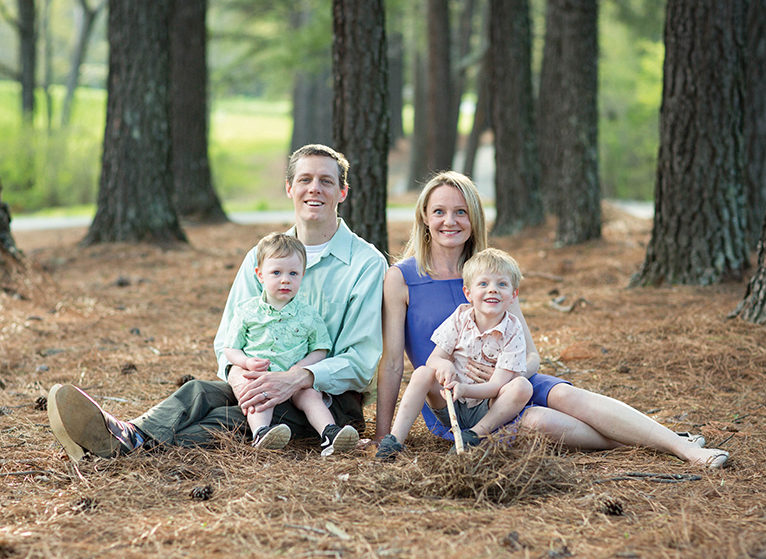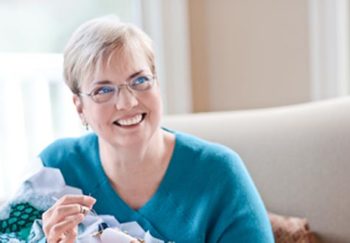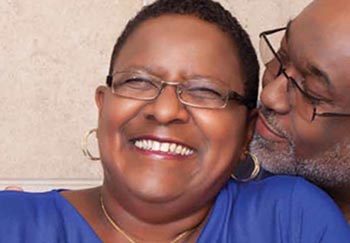
In 2012, Good Morning America anchorwoman Robin Roberts was diagnosed with myelodysplastic syndrome (MDS), a rare blood disease resulting from chemotherapy treatments for breast cancer.

This statistic always gives me pause: About 1 in 8 of my female friends will develop breast cancer. But here’s the good news: Mammograms are now so good at picking up even the tiniest sign of cancer. This means anyone with breast tissue has an amazing chance of surviving breast cancer.
This breast cancer screening guide can get you started on the road to prevention.
Most of us should start getting regular mammograms at age 40. But some need them even earlier, like Nicole Kelleher. She started having them in her 30s. Why? She had a family history of breast cancer. Screenings discovered breast cancer when she was only 36.
There’s not one breast cancer screening guide for everyone. When and how you get screened will depend on your situation. The only rule we should all follow: Get screened.
Mammograms take an X-ray image of the breast. We now have 3D and even contrast-enhanced mammograms. These are even better at picking up breast cancer if you have dense breast tissue.
And if you’re at high risk, other imaging tools, like MRI or ultrasound, might be a better breast cancer screening for you. It’s important to discuss the best option with your provider.
Most women need a yearly screening. But Nicole needed one every 6 months. Her story has a happy ending because she was followed by our high-risk breast cancer team.
Breast cancer screening technology has come a long way. But so too has genetic testing. With a simple blood test, you can find out if you have any of the genetic mutations that might put you at high risk for breast cancer.
Ask yourself 6 key questions to see if you should see a genetic counselor.
Whether facing breast cancer or just worried about it, you’ll find expert care at UVA Health. Read on to meet the researchers, providers, and patients who have been through the journey.

In 2012, Good Morning America anchorwoman Robin Roberts was diagnosed with myelodysplastic syndrome (MDS), a rare blood disease resulting from chemotherapy treatments for breast cancer.

I am the definition of someone who is at high risk for cancer. My aunt died from ovarian cancer at age 51. My mom passed away from breast cancer at 48.

When you find out someone in your family has cancer, you feel terrible for them. That’s happened to me three times.

Upon her diagnosis at the age of 42 with a common form of breast cancer called intraductal carcinoma, Janice Brock made a choice. She chose to be a survivor.

One day a few years ago, I noticed some strange tissue in my left breast. I went to the hospital for a mammogram, which led to a needle biopsy. The biopsy confirmed I had breast cancer.

The most popular blog posts of 2013 were a diverse group, although many shared themes of exciting research and dedicated caregivers. 1. Larry Sabato: His Experience With High-Risk Pancreatic Cancer Clinic [VIDEO]. The well-known UVA professor discussed the history of pancreatic cancer in his family, and why he chose UVA…

Author’s note: All the facts and details here are taken from the 2013 Educational Symposium on Women’s Midlife Health Issues in April of this year, with Drs. JoAnn Pinkerton, Anita Clayton, Amy Tucker and Jennifer Harvey. Last month, there was a musical here in Charlottesville called, simply, “Menopause.” I took…

When I took a tour of the newly built Zion Crossroads Primary and Specialty Care, one of the most memorable parts was seeing a new mammography technology. Mammography technologist Lorie Hubbard passionately explained that this technology, tomosynthesis, catches breast cancers earlier and finds fewer false positives compared to standard mammography.…

It’s October, and we know what that means. Pink. Pink everywhere. We see it year-round, but during Breast Cancer Awareness Month, the pink explodes. We’re told if we buy pink candy, pink shoes, a pink ribbon keychain or test drive a pink car, we’ll be fighting breast cancer. But our…

Breast cancer treatment: Down from six weeks to a single day? It seems far-fetched, but UVA is among the first in the country to develop treatment for breast cancer that does just that. By combining radiation therapy with image-guided surgery, they can offer this new method that: Treats tumors more…
Get stories & health tips every week